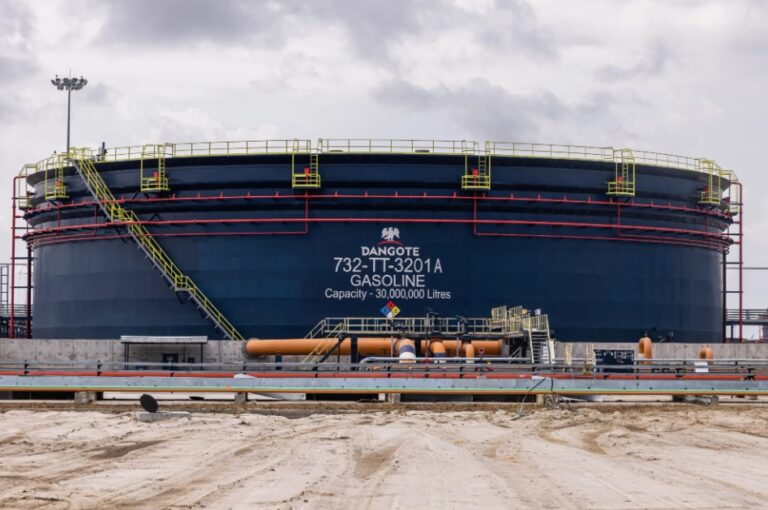Nigeria’s Dangote refinery is sourcing crude oil from around the world to supplement domestic deliveries as the massive plant gradually increases production, reshaping the region’s import and export dynamics.
Since the start of the month, the refinery has received over three million barrels of American crude. It has also made purchases closer to home, recently importing Angola’s Pazflor grade and Algeria’s Saharan Blend from Glencore Plc.
Located near Lagos, the facility has been steadily increasing its processing rates since launching early last year, though it has yet to reach full capacity. However, signs indicate that operations are accelerating.
“Crude deliveries in the last two weeks have averaged 450,000 barrels a day, and our satellite monitoring shows a recent draw in crude stocks at the refinery, indicating runs are likely on the rise,” said Randy Hurburun, senior refinery analyst at Energy Aspects Ltd.
Hurburun estimates that refining runs averaged 380,000 barrels per day in January and February.
A Game Changer for Africa’s Oil Market
At full capacity, Dangote’s refinery could process 650,000 barrels a day, making it Africa’s largest oil refinery and surpassing any individual plant in Europe. The refinery has already helped reduce Nigeria’s crude surplus and reshaped the country’s fuel import landscape.
While foreign crude imports are increasing, local feedstock remains the primary source. Tanker-tracking data from Bloomberg shows the refinery took in over ten million barrels of Nigerian crude last month. Meanwhile, the Nigerian government is negotiating with Dangote to extend a contract that allows crude purchases in local currency. Since the agreement began in October, the Nigerian National Petroleum Company Ltd. has supplied 48 million barrels to the refinery.
“Ultimately, price competitiveness will continue to be the dominant factor in deciding Dangote’s crude imports,” said Ronan Hodgson, a London-based analyst at FGE.
Hodgson highlighted that U.S. West Texas Intermediate (WTI) crude remains an attractive option due to its light-sweet properties and competitive pricing compared to West African grades.
Expanding Supply Options
Beyond WTI, other Atlantic Basin crude options could become viable depending on pricing and terms. These include Libya’s Sharara and Es Sider, as well as North Sea grades like Oseberg, Ekofisk, and Troll.
“The Atlantic Basin offers several alternatives, including supplies from the Mediterranean and North Sea, but the decision will ultimately depend on economic factors,” added Hurburun.
A spokesman for Dangote declined to comment on the refinery’s latest developments.


